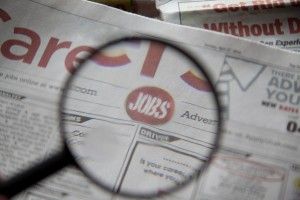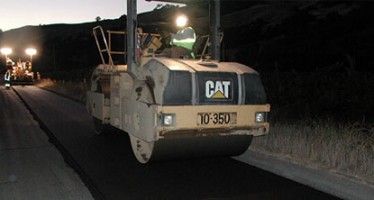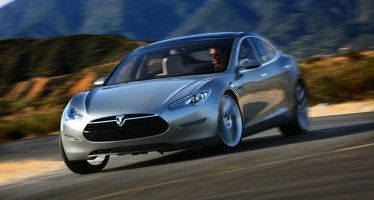Report: Wealthy tech firms create few jobs
 Two years ago, a report from Oxford University’s Martin Programme on the Impacts of Future Technology made waves in the United States with its prediction that 47 percent of the 700 largest U.S. job categories could disappear in coming decades because of robots and advances in information technology. Now two Martin Programme economists, Thor Berger and Carl Benedikt Frey, have issued a new report that raises more questions about the impacts of technological gains on U.S. employment, especially in tech centers like Silicon Valley, Boston and Austin. The key findings:
Two years ago, a report from Oxford University’s Martin Programme on the Impacts of Future Technology made waves in the United States with its prediction that 47 percent of the 700 largest U.S. job categories could disappear in coming decades because of robots and advances in information technology. Now two Martin Programme economists, Thor Berger and Carl Benedikt Frey, have issued a new report that raises more questions about the impacts of technological gains on U.S. employment, especially in tech centers like Silicon Valley, Boston and Austin. The key findings:
A central contribution of this paper is to document employment opportunities created in entirely new industries – that appeared for the first time between 2000 and 2010 – associated with the arrival of new technologies.
These data are used to examine the determinants of new industry creation, showing that new industries are more likely to emerge in human capital abundant places and cities that specialize in industries that demand similar skills.
Yet, the magnitude of workers shifting into new industries is strikingly small: in 2010, only 0.5 percent of the U.S. labour force is employed in industries that did not exist in 2000.
Crucially, it is found that many new industries of the 2000s stem from the digital revolution, including online auctions, internet news publishers, social networking services and the video and audio streaming industry. Relative to major corporations of the early computer revolution, the companies leading the digital revolution have created few employment opportunities: while IBM and Dell still employed 431,212 and 108,800 workers respectively, Facebook’s headcount reached only 7,185 in 2013.
Because digital businesses require only limited capital investment, employment opportunities created by technological change may continue to stagnate as the U.S. economy is becoming increasingly digitized.
Uber an exception to grim picture — for now
But there is a California company that is an exception to the scenario outlined by Berger and Frey. It’s San Francisco-based Uber. Earlier this month, Uber CEO Travis Kalanick used a posting on his company’s web site to trumpet its claim to have created 1 million jobs around the world in 2015.
That trend isn’t necessarily likely to last, however. Uber, Google and other tech firms in California are leading the push to create self-driving cars.
This is from a September report on TechCrunch.
Uber poached around 50 scientists working on self-driving car technology at Carnegie Mellon University’s National Robotics Engineering Center earlier this year. Uber had been partnering with CMU to research building its own autonomous vehicles. But then it pulled from a massive venture funding war chest to hire away a lot of CMU’s talent for its Uber Advanced Technologies Center.
Now, Uber appears to be publicly trying to win back the good graces of the academic community by announcing a $5.5 million gift to CMU. The money will support hiring a new robotics faculty chair and three fellowships.
Google was also in the news on this front this month, ripping the California Department of Motor Vehicles for its proposed rules on self-driving cars.
Chris Reed
Chris Reed is a regular contributor to Cal Watchdog. Reed is an editorial writer for U-T San Diego. Before joining the U-T in July 2005, he was the opinion-page columns editor and wrote the featured weekly Unspin column for The Orange County Register. Reed was on the national board of the Association of Opinion Page Editors from 2003-2005. From 2000 to 2005, Reed made more than 100 appearances as a featured news analyst on Los Angeles-area National Public Radio affiliate KPCC-FM. From 1990 to 1998, Reed was an editor, metro columnist and film critic at the Inland Valley Daily Bulletin in Ontario. Reed has a political science degree from the University of Hawaii (Hilo campus), where he edited the student newspaper, the Vulcan News, his senior year. He is on Twitter: @chrisreed99.
Related Articles
Voters want better roads, payment uncertain
A new Field Poll found California registered voters want more construction and repairs to the state’s shaky road system. But
Electric cars upend CA politics
As California’s electric car industry heats up, Sacramento’s role in incentivizing the vehicles for environmentalist reasons has become an uncharacteristic
Wary Palm Springs guards its cheap, plentiful water
The California narrative about water is generally a tidy tale about the arid south scrambling to come up with water




